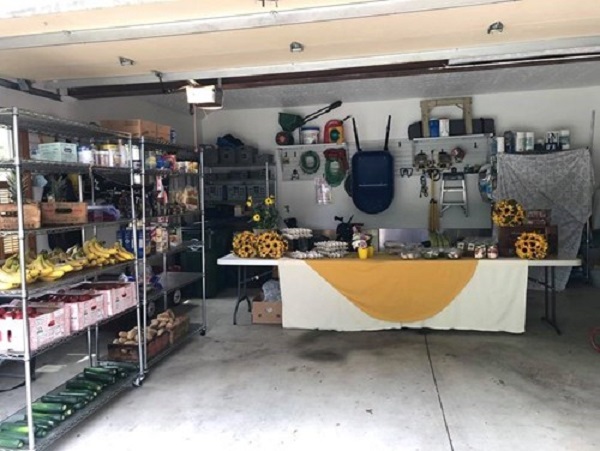12/28/2020
The West Side Community Food Co-op: A Response to COVID-19
- Share This Story

From social action campaigns to development work, Mariely Luengo has always been an activist and leader. A native of Puerto Rico raised in a Sephardi home, Mariely has been working independently in the Greater Cleveland nonprofit sector and leaving her mark on Jewish Cleveland since she arrived four years ago. A member of YLD and part of a 248 Community Action Network cohort, she is a testament to terrific leadership development by Federation-funded initiatives. She delivered a moving presentation at this year’s annual meeting and was named as one of the co-chairs for this year’s Super Sunday.
Mariely is the co-founder of West Tribe, a nonprofit that serves and assists approximately 325 Jewish households, to carry out cultural, community and religious activities. The families which hail from Ohio City to Vermillion know each other well and Mariely, as a group organizer, tends to know who might be in financial distress. Relationships she forged through YLD and 248 inspired her to start the West Side Community Food Co-op (or the Community Food Co-op) at this time, and to whom she went for help.
When COVID-19 hit, it was evident that food insecurity in the community increased manifold, yet people were and are too proud to admit to hardships. Mariely and her team quickly conceptualized not a food bank or pantry but, rather, the Community Food Co-op, a place where people could come to “shop” for free produce, meat, dairy, bread, personal care items and more and where they would be expected to “contribute” something in return. Folks immediately volunteered to help with the shopping at the West Side market to stock the food Co-op. Others volunteered to tutor, transport individuals or make deliveries and dispense legal advice in exchange for food for “their children” or for themselves, “only if something was left over,” to ensure food was left “for those who really need it.”
This is a proud group of people, but clearly in need. Mariely found, for example, that when she had to postpone one of the “shopping” days (and there have been approximately nine of them), she received multiple calls from people eagerly awaiting the new date. Mariely indicates West Tribe leadership is, “hyperaware that this crisis forced a lot of families into situations unimaginable for themselves. Our priority is to serve the families, while preserving their dignity.”
While approximately 40% of food and personal care items are donated, Mariely and a few brave souls, including a nurse who was already working on the front-lines, head out at 4:30 am the day before the Community Co-op is to operate (out of her garage!), to purchase good deals. While a temporary site and not a member agency of the Greater Cleveland Food Bank, the Co-op has worked with the Food Bank and has acquired a temporary shopping code to capitalize on Food Bank’s purchasing power. Mariely also has developed relationships with local vendors.
Co-op days are punctuated by warmth and hospitality. If the Co-op is open for business on a Friday, families walk away with challah and other items for a festive Shabbat meal. They are greeted with pitchers of water and a little chatter ensues. On the other hand, families are asked to go into the store one at a time under the guises of COVID-19 safety, but also to maintain some privacy for the families. In an effort to reach out to the greater community while still ensuring there is enough aid for the West Tribe community, Mariely has reached out to the Centro Cultural Hispanico on the West side and invited their neediest families to regularly “shop” at the West Tribe Community Food Co-op.
As Passover neared toward the beginning of the pandemic, West Tribe noted families would be celebrating Passover without necessary items for a seder. Jewish Family Service Association (JFSA) donated Passover boxes to The West Tribe. In turn, the organization sought out donations from synagogues and others and supplemented those packages, for distribution. From there, Mariely spoke with Federation and received an introduction to both the Cleveland Chesed Center (which has donated and other items to the group), Gesher (which is in conversations with West Tribe about helping them to navigate the myriad of health and welfare programs), and JFSA has continued to be a great source of resources for the Co-op and its shoppers.
Mariely estimates that for $1,000, approximately 50 families’ grocery and personal care needs can be met for two weeks. She views the program as a band-aid to the problem of food insecurity and believes the need will grow over the course of the pandemic. At a recent Co-op event, 39 households, or approximately 250 individuals, participated. Eighteen individuals mentioned they were recently laid off.
On the other hand, program organizers are grateful for the flexibility that, especially, JFSA and the Chesed Center have displayed. They also appreciate the way in which they have been able to begin to connect West Side community members with well-established Jewish services in the Cleveland community, something they hope will last beyond the current crisis.
You make stories like this possible because of your support to the Jewish Federation of Cleveland's Campaign for Jewish Needs.

